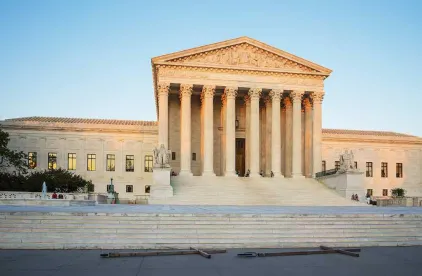On December 15, 2021, the United States Supreme Court granted certiorari in Viking River Cruises, Inc. v. Moriana, a case which asks whether the Federal Arbitration Act (“FAA”) requires the enforcement of bilateral arbitration agreements providing that an employee cannot raise representative claims, including under the California Private Attorneys General Act (“PAGA”).
By way of background, in 2014, the California Supreme Court held in Iskanian v. CLS Transportation Los Angeles, LLC, 59 Cal. 4th 348 (2014), that waivers of employees’ right to pursue PAGA actions violate California public policy and are unenforceable under state law. Iskanian further held that the FAA does not preempt California state law prohibiting PAGA waivers. The California Supreme Court reasoned that the FAA does not preempt California’s rule because a PAGA action is not a dispute between an employer and an employee. Rather, it is a dispute between the employer and the state; the employee merely serves as the state’s proxy. A year after the California Supreme Court decided Iskanian, the United States Court of Appeals for the Ninth Circuit also held in a 2-1 split decision in Sakkab v. Luxottica Retail North America, 803 F.3d 425 (9th Cir. 2015), that the FAA does not preempt California’s rule that an employee’s right to pursue a PAGA action cannot be waived through an arbitration agreement. Since then the United States Supreme Court has denied several petitions seeking review of the question.
In this particular case, Viking River moved to compel individual arbitration in California state court. The trial court denied Viking River’s motion to compel arbitration, holding that Moriana’s PAGA action could not be compelled into arbitration based on California state law. The California Court of Appeal affirmed and then the California Supreme Court denied Viking River’s petition for review. Viking River then petitioned for certiorari, arguing that the Supreme Court’s decisions in AT&T Mobility LLC v. Concepcion, 563 U.S. 333 (2011), and Epic Systems Corp. v. Lewis, 138 S.Ct. 612 (2018) support the conclusion that the FAA requires enforcement of bilateral arbitration agreements in PAGA actions. In those cases, the Supreme Court held that arbitration agreements must be enforced according to their terms, including terms that prohibit class or collective arbitrations.
It is unclear what caused the Supreme Court to grant Viking River’s invitation after it denied so many similar petitions. Whatever its reasoning, the Supreme Court should have its decision in Viking River by the Summer of 2022. As such, employers should consult their employment counsel and consider updating their arbitration agreements if they carve out PAGA claims entirely from arbitration in the event the Supreme Court holds that the FAA requires the enforcement of arbitration agreements in PAGA actions.




 />i
/>i
